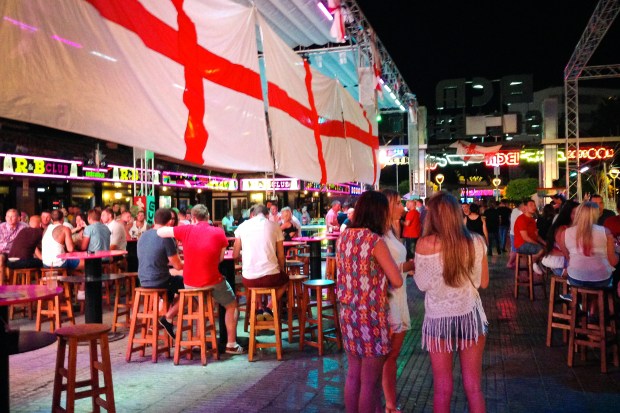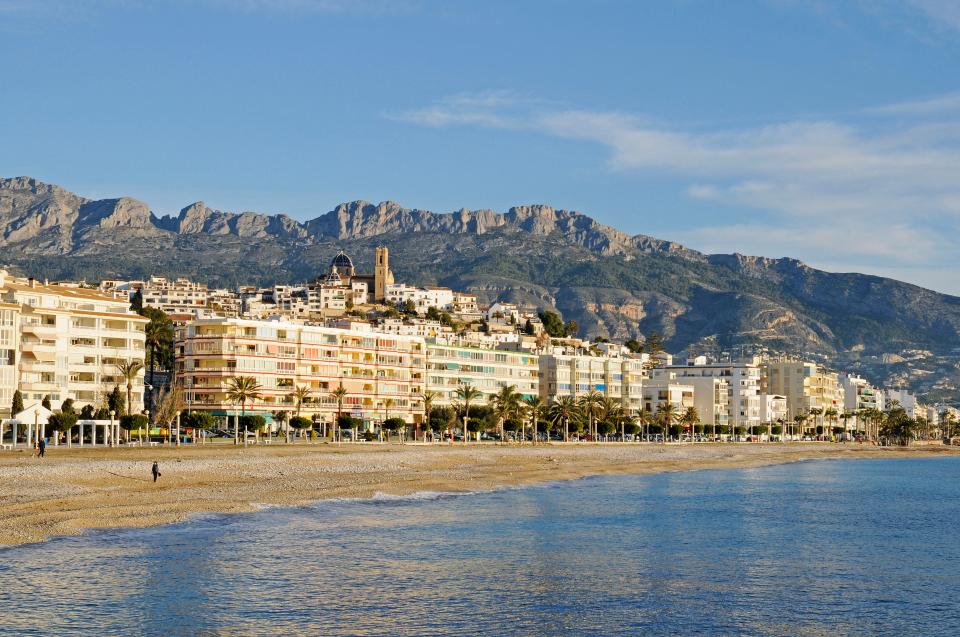A POPULAR holiday hotspot in Spain will reportedly ban 24-hours bars as it introduces a strict curfew.
Brits jetting to Alicante will be disappointed to learn that they have to end their nights out early.
Holidaymakers flock to Spain for the hot weather, beautiful beaches and a fun night life.
Although Spaniards are known for their late dinners and partying till the early morning hours, it might not be the case anymore.
Alicante, a port city in Costa Blanca, is implementing a new curfew due to the noise complaints, according to the Olive Press.
Businesses will now be forced to close at 12.30am on weekdays and 1am on weekends.
Nightclubs and other night entertainment venues will also shut their doors earlier than before.
On weekdays, patrons will be asked to leave at 1am and on weekends parties will be cut short at 3am.
The crackdown on noise will be most severe in Old Town and the city centre close to Calle Castaño, also known as Acoustically Saturated Zones (ZAS).
Restaurants, bars, and nightclubs in these impacted areas will also be prohibited from obtaining new licenses or permits in addition to the revised schedule.
This also holds true for any other location where tourist traffic can become unmanageable, like cafés, food and drink stands, newspapers, event spaces, and karaoke bars.
Even establishments that work around the clock will be forced to close their doors between 12.30am to 7am.
During these hours, local police is expected to patrol the streets to reinforce the curfew rules and check that restaurant terraces are neatly packed up.
But the curfew will reportedly ease up around Christmas and New Year time with the exact hours yet to be confirmed by the local council.
The new restrictions come as 18million tourists passed through the Alicante-Elche airport last summer.
A whopping 5million visitors picked Alicante as their vacation destination last year.
Spain has introduced a number of strict rules across the country as it battles overcrowding while resorts are packed with tourists.
Smoking is banned on a number of beaches in Barcelona and the Canary islands, with fines up to £1,700.
Some restaurants in Majorca ban any tourists who are wearing football shirts.
And alcohol limits are in place on destinations such as Magaluf and Ibiza.
Tourists at all-inclusive resorts will only be allowed to have three drinks in the day and three in the evening.
Meanwhile, anti-tourist demonstrations have been sweeping holiday hotspots with the next protest set to happen tomorrow.
Hundreds take to the streets in high foot traffic areas, airports and major landmarks to demonstrate against overtourism, blaming holidaymakers for spiralling prices, housing shortages, overcrowded city centres and environmental issues.
Anti-tourist measures sweeping hotspots

A WAVE of anti-tourist measures are being implemented across Europe to curb mass tourism in popular holiday hotspots.
Overcrowding has become the main problem in many sunny destinations, with authorities trying to find a solution to keep tourists and locals happy.
Officials have attempted to reduce the impact of holidaymakers by implementing additional taxes on tourists, or banning new hotels.
Earlier this year Venice became the first city in the world to charge an entry fee for holidaymakers after it started charging day-trippers €5 (£4.30) if visiting the historical Italian centre.
It was followed by an area in Barcelona which resorted to removing a well-used bus route from Apple and Google Maps to stop crowds of tourists from using the bus.
Meanwhile, San Sebastián in the north of Spain, limited the maximum number of people on guided visits to 25 to avoid congestion, noise, nuisance and overcrowding.
The city has already banned the construction of new hotels.
The Spanish government has allowed restaurants to charge customers more for sitting in the shade in Andalucia.
Benidorm has introduced time restrictions, as swimming in the sea between midnight and 7am could cost a whopping £1,000.
The Canary Islands are also considering adopting measures to regulate the number of visitors – and charge tourists a daily tax.
Greece has already enforced a tourist tax during the high season (from March to October) with visitors expected to pay from €1 (£0.86) to €4 (£3.45) per night, depending on the booked accommodation.
Officials in Santiago de Compostela in Galicia want to introduce a fee for travellers to remind people to be courteous during their trips.












